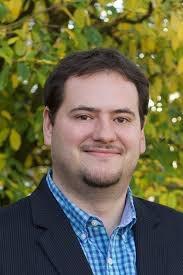Dr. Bluck is an Assistant Professor of Physics at the Florida International University (FIU) in Miami, Florida, USA. He completed his BSc in Physics (University of Durham, 2005); MSc in Cosmology (University of Sussex, 2007); and PhD in Astrophysics (University of Nottingham, 2011). He has held postdoctoral positions at the Gemini Observatory in Hawaii; the University of Victoria in Canada; ETH Zurich in Switzerland; and the University of Cambridge in the UK.
His research is focused on extragalactic astrophysics and observational cosmology, particularly the formation and evolution of galaxies within a cosmological context. He is especially interested in the formation of stars within galaxies, the cessation of star formation via ‘quenching’, and the role of supermassive black holes in galaxy evolution. He also researches the origin of large-scale structure in the Universe, and the role of cosmic environment in shaping galaxy evolution. In a recent publication, Dr. Bluck has demonstrated that the central gravitational potential is key for regulating star formation in the first galaxies in the Universe using unprecedented observations with the James Webb Space Telescope (Bluck et al. 2024).
Dr. Bluck has authored over 50 research articles on diverse topics in galaxy astrophysics and cosmology in leading peer-reviewed scientific journals, collectively receiving over 3500 citations. Throughout his career, Dr. Bluck has received numerous honors, including a life senior membership of Hughes Hall College, University of Cambridge; Fellowship of the Royal Astronomical Society; and Chartership at the UK Institute of Physics. He has also recently been appointed a full member of the FIU chapter of the Sigma Xi Scientific Research Honors Society.
At FIU, Dr. Bluck teaches an undergraduate course in Modern Astrophysics and a graduate course in General Relativity & Cosmology. He leads the extragalactic astrophysics research group, which focuses on exploring the formation and evolution of galaxies using state-of-the-art observatories (e.g., JWST, HST and VLT) and cosmological simulations (e.g., Eagle, Illustris and TNG). He also organizes the physics colloquium series.
